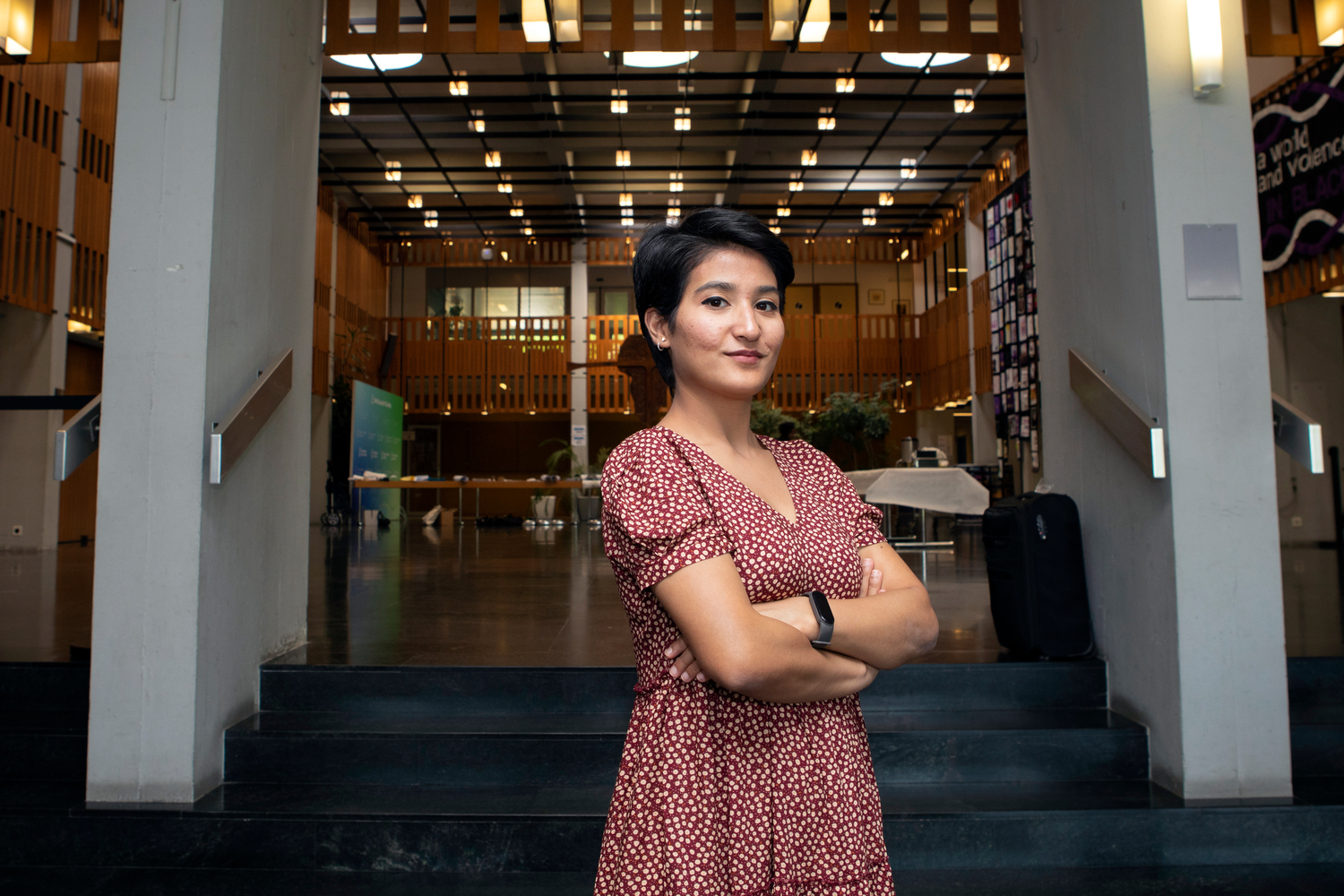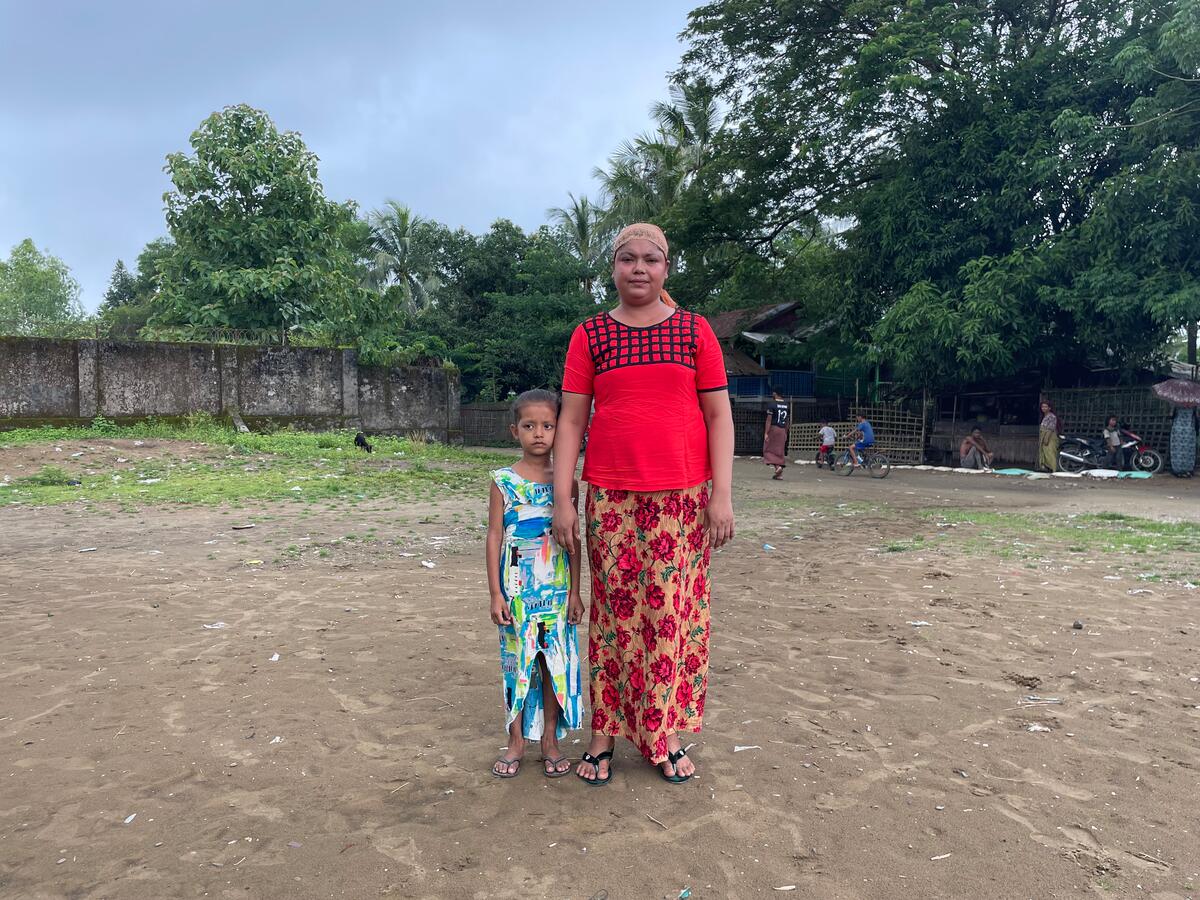UNHCR welcomes new General Recommendation
on refugee and stateless women
UNHCR welcomes new General Recommendation
on refugee and stateless women
The UN refugee agency has welcomed a new set of international guidelines, adopted today by the UN Committee on the Elimination of All Forms of Discrimination against Women, calling for countries to adopt a more gender-sensitive approach to dealing with women refugees, asylum-seekers and stateless people in order to take account of the abuses they frequently suffer.
"We see many cases of women who flee their countries and seek asylum as a result of widespread gender-based violence. This General Recommendation should assist countries on how to deal with these cases in a gender-appropriate way," said UNHCR's Director of International Protection, Volker Türk.
Building on UNHCR's own guidelines and work on gender-related persecution, the General Recommendation explains that countries need to take account of gender equality and non-discrimination in their asylum processes. A failure to adopt a gender-sensitive approach can all too often result in inconsistent asylum decisions and deprive many women and girls of international protection.
Arranging for women-asylum seekers to be interviewed by female case officers is a crucial element in the new guidelines, alongside putting in place procedures that allow women to present their claims in their own right, in a safe environment, free from intimidation. "These guidelines reinforce that no woman or girl shall be returned to persecution or gender-based violence and that they have a right to seek asylum," Mr Türk emphasised.
Another key focus is women's right to nationality, including the right to acquire, change or retain their nationality and to confer their nationality on their children and spouses. Removing gender discrimination from nationality laws is one of the 10 Actions proposed in the Global Action Plan to End Statelessness: 2014-2024, which was launched by UNHCR yesterday as part of a new campaign on the issue (http://www.unhcr.org/stateless2014/). There are still 27 countries, for example which do not allow women to pass on their nationality to their children, which can render children stateless, with devastating consequences for their childhood and into adulthood.
"The General Recommendation is an important tool to help us tackle this issue and avoid future generations joining the ranks of the world's stateless; there are currently 10 million stateless people in the world and we want to eradicate this anomaly, not see it further increase," said Türk.
Background
UN Committee on the Elimination of All Forms of Discrimination against Women is the body of independent experts that monitors implementation by States parties of the Convention on the Elimination of All Forms of Discrimination against Women (the CEDAW Convention). The Committee reviews the performance of 188 States parties on a periodic basis, and issues recommendations to them on specific aspects of their obligations under the CEDAW Convention. These are called General Recommendations. General Recommendation No. 32 on the gender-related dimensions of refugee status, asylum, nationality and statelessness of women will be available today at: http://www.ohchr.org/en/hrbodies/cedaw/pages/cedawindex.aspx
UNHCR's Guidelines on International Protection No. 1: Gender-Related Persecution Within the Context of Article 1A(2) of the 1951 Convention and/or its 1967 Protocol Relating to the Status of Refugees, 7 May 2002, HCR/GIP/02/01, are available at: http://www.refworld.org/docid/3d36f1c64.html
For more information, please contact
- In Geneva, Ariane Rummery, on mobile +41 79 200 7617, [email protected]
- In Geneva, Francis Markus, on mobile +41 79 301 1966, [email protected]









